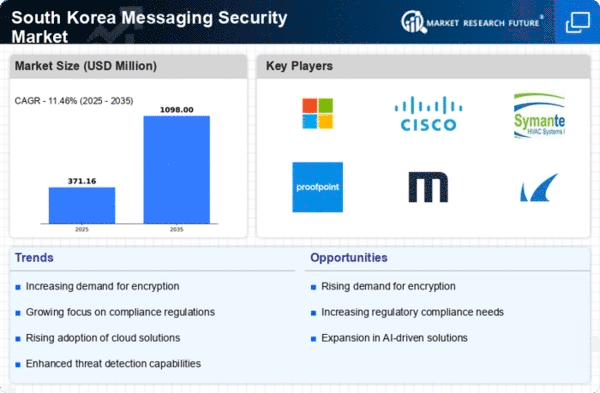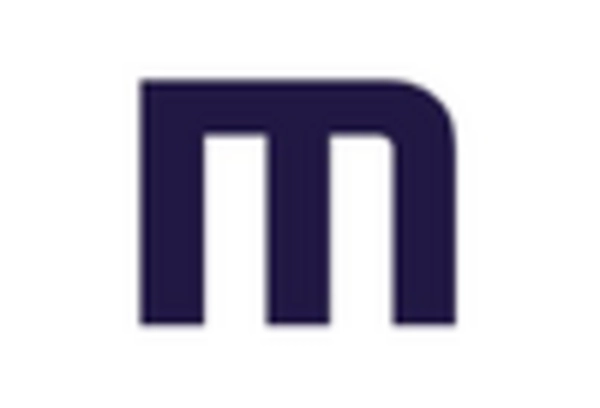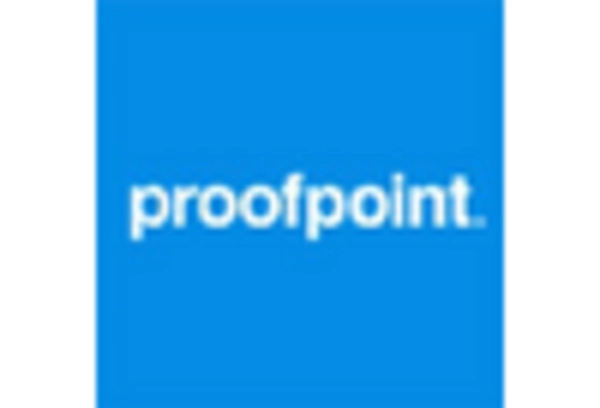Rising Cybersecurity Threats
The increasing frequency and sophistication of cyber threats in South Korea has propelled the demand for robust messaging security solutions. As organizations face a surge in phishing attacks, malware, and data breaches, the messaging security market is witnessing heightened interest. In 2025, it is estimated that cybercrime could cost the South Korean economy upwards of $30 billion annually. This alarming trend underscores the necessity for businesses to invest in advanced messaging security technologies to safeguard sensitive communications. The messaging security market is thus positioned to grow as companies prioritize the protection of their digital assets against evolving threats.
Regulatory Compliance Pressures
In South Korea, stringent regulatory frameworks governing data protection and privacy are driving organizations to adopt comprehensive messaging security measures. The Personal Information Protection Act (PIPA) mandates strict compliance, compelling businesses to ensure the security of their messaging systems. Non-compliance can result in hefty fines, reaching up to 3% of annual revenue. Consequently, the messaging security market is experiencing a surge in demand as companies seek solutions that not only protect their communications but also ensure adherence to legal requirements. This regulatory landscape is likely to continue influencing market dynamics in the coming years.
Growing Awareness of Data Privacy
As public awareness of data privacy issues rises in South Korea, consumers are demanding greater transparency and security from businesses. This shift in consumer expectations is compelling organizations to enhance their messaging security protocols. The messaging security market is thus witnessing an uptick in the adoption of solutions that prioritize user privacy and data protection. Surveys indicate that over 70% of South Koreans are concerned about their personal data security, prompting companies to invest in technologies that address these concerns. This growing awareness is likely to shape the future landscape of the messaging security market.
Shift to Remote Work Environments
The transition to remote work has fundamentally altered communication practices within organizations in South Korea. As employees increasingly rely on digital messaging platforms, the need for secure messaging solutions has become paramount. The messaging security market is responding to this shift by offering solutions that protect remote communications from potential threats. In 2025, it is projected that remote work will account for over 30% of the workforce in South Korea, further emphasizing the necessity for effective messaging security measures. This trend is likely to drive innovation and investment in the sector.
Technological Advancements in Security Solutions
The rapid evolution of technology is significantly impacting the messaging security market in South Korea. Innovations such as machine learning and artificial intelligence are being integrated into security solutions, enhancing their effectiveness against emerging threats. In 2025, it is anticipated that the market for AI-driven security solutions will grow by over 25%. This technological advancement not only improves threat detection but also streamlines the management of messaging security systems. As organizations seek to leverage these advancements, the messaging security market is expected to expand, driven by the demand for cutting-edge security technologies.
















